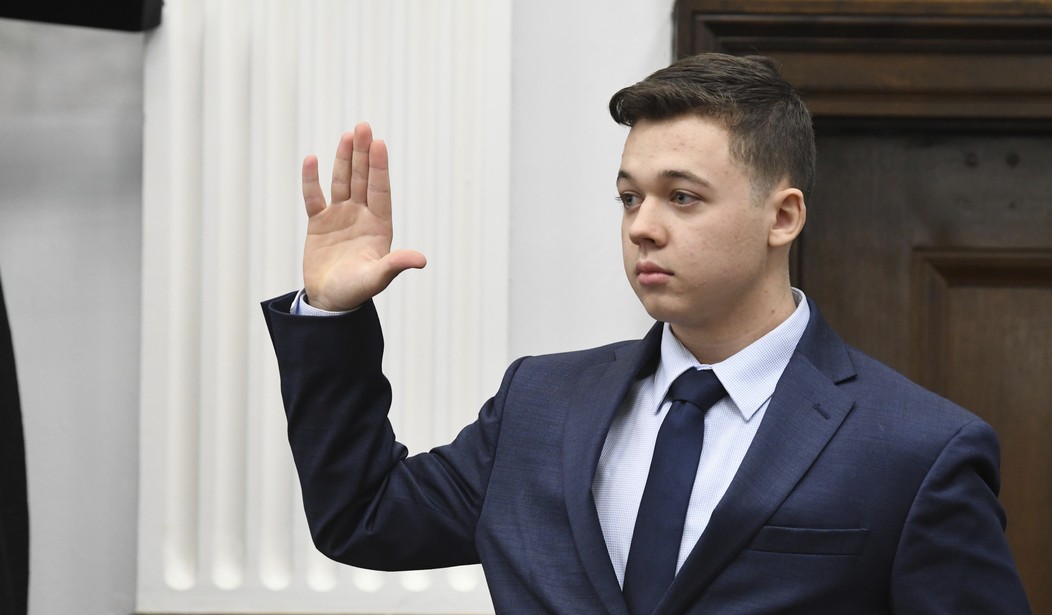The last of the legal odds and ends related to the Kyle Rittenhouse case are being closed out in the courts. Yesterday brought what should wind up being the end of the process for Dominick Black of Racine, Wisconsin. He is the family friend who had purchased the rifle that Rittenhouse used in the shooting during the protest in Kenosha last year. Black had originally been charged with a felony, specifically ‘delivering a dangerous weapon to a minor, resulting in death.’ A conviction could have resulted in serious jail time. But the judge in the case has accepted a plea deal worked out between prosecutors and the defense, allowing Black to plead guilty to ‘contributing to the delinquency of a minor’ and pay a relatively modest fine. The question we will examine today is why Black agreed to plead guilty to anything. (NY Post)
The Wisconsin man who purchased the AR-15-style rifle used by Kyle Rittenhouse will no longer face felony charges under a plea deal announced Monday.
Dominick Black, 20, of Racine, will instead plead guilty to a reduced charge of contributing to the delinquency of a minor and pay a $2,000 fine.
Black was charged in 2020 with two counts of intentionally giving a dangerous weapon to a minor after he bought the gun for then-17-year-old Rittenhouse
The coverage of this development we’re seeing thus far seems to suggest that Black was lucky to receive such a deal and might be seen as “getting off easy.” But that view doesn’t make much sense when you look at the reasons that were cited in court for agreeing to the plea deal. Two primary factors were mentioned. One was the fact that Black had agreed to testify for the prosecution in Rittenhouse’s trial, which he did. That clearly earned him some credit with the prosecutors’ office, which is fair enough.
The other reason, however, was the judge’s agreement with a point made during the Rittenhouse trial. It was clarified that “Wisconsin law does not prohibit minors from possessing long guns.”
To understand why that’s important we need to look at the statute that Black pleaded guilty to, which was 948.40 Contributing to the delinquency of a child. Sections (1) and (2) of this statute apply to persons not responsible for the welfare of the child and people who are responsible, respectively. So Black would have been charged under section 1. But no matter which section was applicable, the law specifically prohibits anyone “intentionally encouraging or contributing to an act by a child under the age of 10 which would be a delinquent act if committed by a child 10 years of age or older.”
This law appears to only apply to actions contributing to the delinquency of a child under the age of 10. Rittenhouse was 17 when Black gave him the rifle.
The other important facet of this question comes with the state’s definition of delinquency. The statute reads, “Delinquency is any violation of state criminal law by a child.”
So in order to be guilty, the prosecution would have to establish that by giving Rittenhouse the rifle, Black encouraged or contributed to a violation of state criminal law by Rittenhouse. The judge has already agreed with the fact that it was legal for Rittenhouse to possess the rifle at that age. It is also legal to open carry in Wisconsin. And since Rittenhouse was found not guilty of all charges, he did not violate any Wisconsin criminal law by shooting his attackers.
In other words, how could Black have been found guilty in this case? When he gave Rittenhouse the rifle, no subsequent actions by Kyle Rittenhouse related to his possession of the firearm would qualify as an act of delinquency. Perhaps Black’s attorney convinced him that it was easier to simply take the deal and fork over $2,000 so he could get on with his life. But now he has that misdemeanor on his record. If Black had insisted on going to trial on this charge, I think the prosecution would have had a very difficult time bringing in a guilty verdict.









Join the conversation as a VIP Member